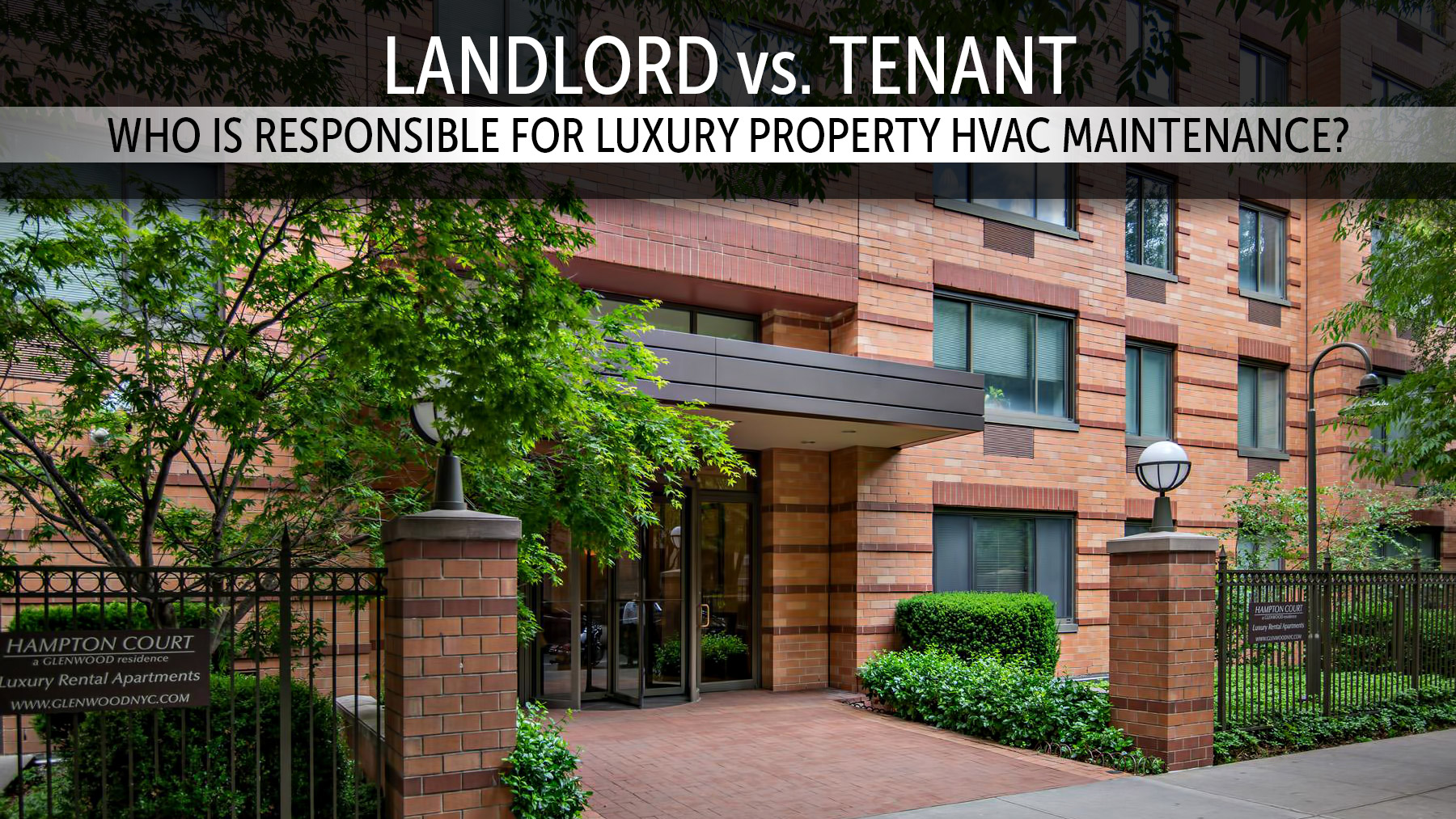
If you’ve just started renting a new luxury apartment unit, you may be excited to see that you have an HVAC system with central air and heating. With many tenants renting older buildings, HVAC systems aren’t always a guarantee when entering a rental property, especially with how popular radiator heat still is in many units across the country. That being said, if you are so lucky to have an HVAC system in your luxury property rental, you may be wondering who is responsible for its maintenance. If it was your home, the question would be easy to answer; however, in a rental situation, many other aspects of home maintenance fall on the landlord’s shoulders, and not the tenants’.
Here are a few common distributions of responsibility you may agree to with your landlord when renting a unit with HVAC.
Tenant has full responsibility
While not an ideal way to handle HVAC if you’re a tenant, some landlords require tenants to take full responsibility for their HVAC system. The good news is that this is typically just annual maintenance inspections, and there are plenty of affordable HVAC specialists to service your HVAC. No matter where you are renting, you should always be able to find a reliable option to take a look at your HVAC. From HVAC and plumbing services in Ottsville, PA to bigger cities like Chicago and Los Angeles, you’ll be grateful that your service is high quality, even if you’d rather the landlord was footing the bill.
Tenant has limited responsibility
Another option to consider when determining whether the tenant or landlord is responsible for HVAC maintenance is a limited responsibility agreement. These types of agreements are great for tenants who are okay with the ideological idea of paying for a portion of the HVAC, but don’t want to get blindsided by unexpected expenses related to it. In a limited responsibility agreement, the tenant and landlord set a maximum amount that the tenant is expected to pay towards maintenance and repairs. Similar to your health insurance’s deductible, once you hit that amount, you are not responsible for expenses over that limit. Some landlords will even split the cost of the HVAC’s average lifespan into monthly costs and just include that as a portion of expenses the tenant needs to cover, similar to your water bill and other utilities.
Sharing responsibility
One way that you may agree to handle HVAC maintenance with your landlord is to split the responsibility. In some cases, this means that you will pay for annual maintenance as the tenant, but if anything needs to be replaced, your landlord will be responsible for it. This arrangement works well because as a tenant you still have the safety net of your landlord if anything catastrophic happens to the HVAC. Otherwise, you are only paying a slight annual amount in order to enjoy the benefits of central air in your apartment.
Obviously, you may have a preference as to which of these arrangements exists between you and your landlord. Because of that, it’s a great idea to start the discussion with your landlord before you sign your lease. Doing so during the tenant background check portion of the application process is a great time to go about having such a conversation since it shows the landlord that you are truly interested in renting from them. With a few common agreements in mind, you’ll be able to have a productive conversation and come to a solution that benefits both parties.
Once you come up with a compromise that works best for both you and your landlord, make sure that you sign a document which clearly articulates the agreement you have settled on. This will protect you and your landlord should there ever be any discrepancies or disputes about who owes who money following a repair.